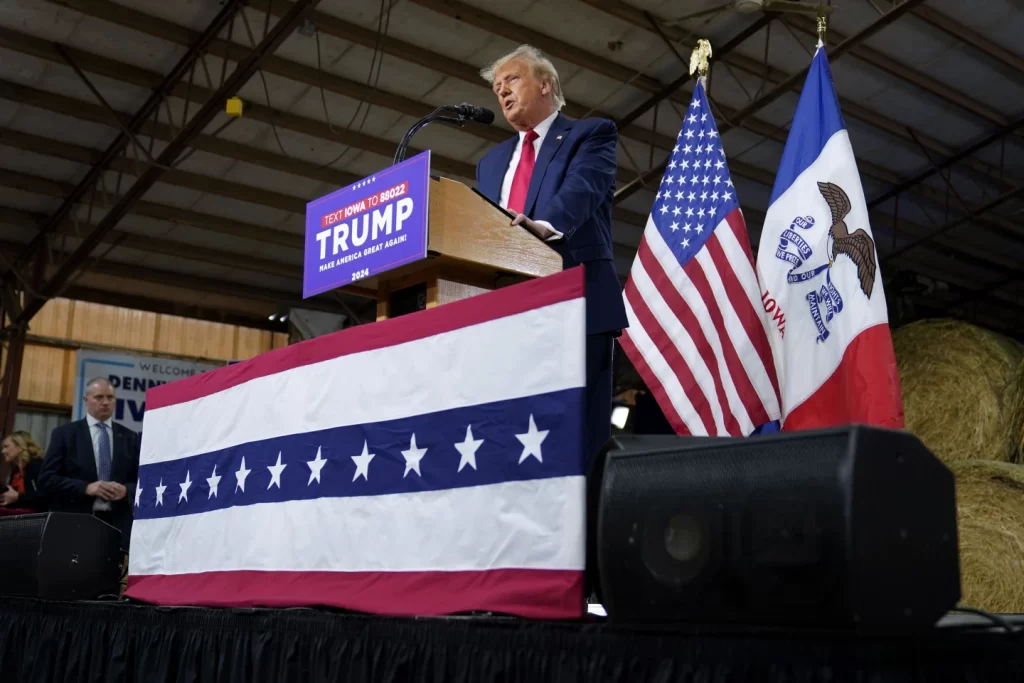
DES MOINES, Iowa — The Iowa frenzy is typically in full force by now.
With less than three weeks until the Iowa caucuses formally usher in the presidential nomination process, White House hopefuls are usually in a heated competition. They fan out across the state and pack as many events into a single day as is humanly possible — all in a bid to appeal to undecided voters and lock down support that could lift them to victory in Iowa and keep them in the race for months to come.
But as the campaign intensifies ahead of the Jan. 15 caucuses, the normal frenzy is subdued. While the schedule is filling up, former President Donald Trump is such a commanding force in the party that some voters worry the contest that normally transforms Iowa into the center of the political world may turn out to be something of a snooze.
“It’s kind of frustrating,” said Jenna Maifeld, a 19-year-old student at the University of Iowa who is eager to participate in her first caucus but is disappointed with the campaign cycle’s lack of competition. “I feel like a lot of people’s voices aren’t being heard.”
“A lot of candidates are hoping that one of these spears in his back will finally take him down, but I doubt it,” said Nick Peters, a 31-year-old from Prairie City who is also among the Iowa Republicans frustrated by Trump’s dominance.
Trump enters the final stretch before the caucuses facing a host of challenges. He’s the subject of 91 criminal charges related to everything from his handling of classified information to efforts to overturn the 2020 presidential election. The Colorado Supreme Court and Maine’s top election official have recently declared Trump ineligible to appear on their states’ ballots, decisions the former president is likely to appeal to the U.S. Supreme Court.
And Trump is embroiled in controversy over his harsh rhetoric toward immigrants, repeatedly using language that extremism experts say echoes writings from Adolf Hitler about the “purity” of Aryan blood, which underpinned Nazi Germany’s systematic murder of millions of Jews and other “undesirables” before and during World War II.
For now, however, Trump’s baggage appears to be doing little to deter a majority of Republican voters. In fact, Trump has sought to turn his vulnerabilities into something of an advantage, arguing that he’s been indicted on behalf of his supporters. He’s also aimed to turn around concerns that he poses a threat to democracy by accusing President Joe Biden of harnessing the power of government against a political rival. There’s no evidence that Biden or the White House had any influence on the Justice Department’s decision to criminally charge Trump.
It’s Trump’s impenetrable base of support that has left many feeling resigned to seeing his name on the ballot in November.
“If democracy is working fairly and if the country wants him, then it’s going to be him,” said Dylan Kooiman, a 21-year-old student at Dordt University in Sioux Center, Iowa, who said it would be hard for him to support Trump given his legal battles. “It doesn’t always fall the way everyone wants it.”



